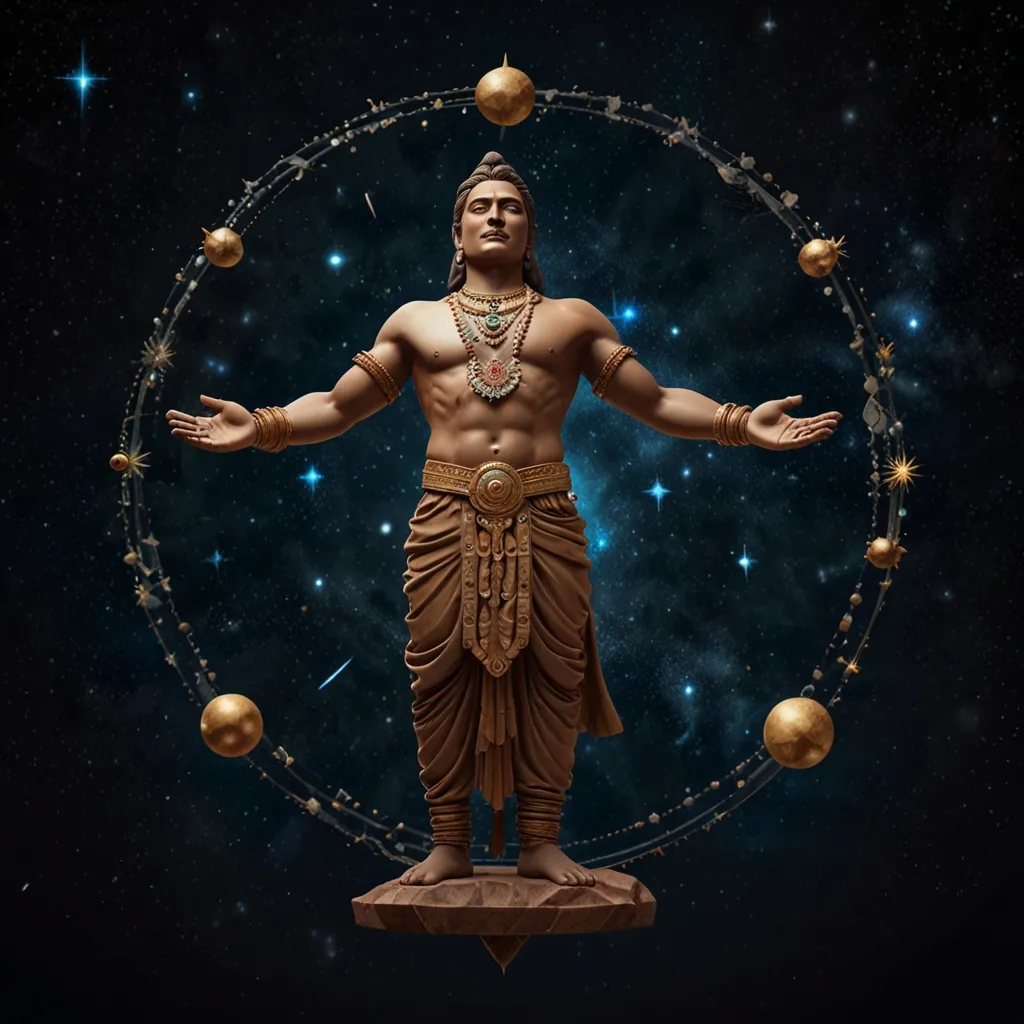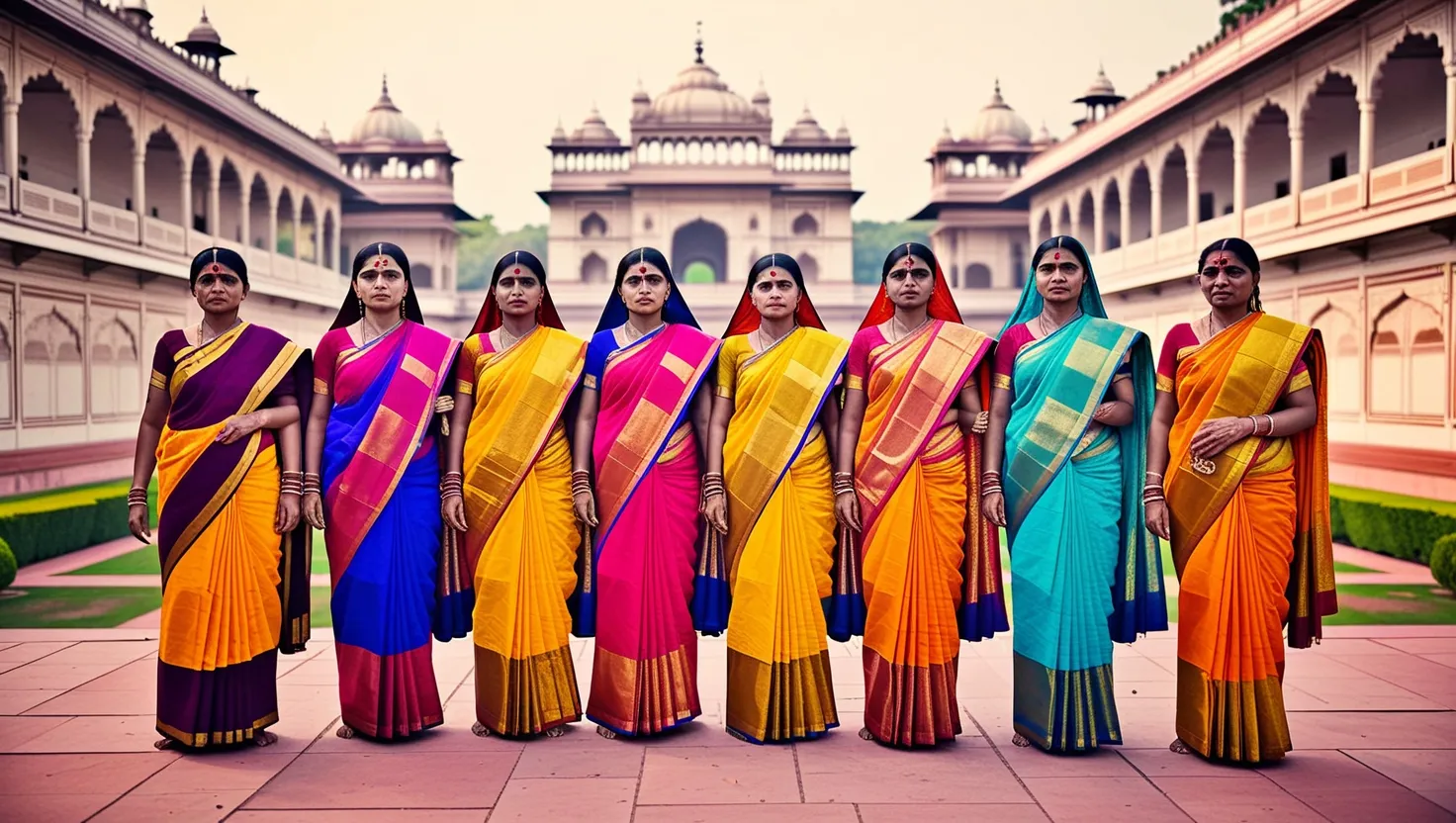In the ancient roots of Ayodhya, there’s a tale that has been passed down through generations, a tale of a king named Harishchandra. This king was famous for his relentless adherence to truth and integrity. His story is one marked by incredible courage and sacrifice, and even today, it continues to inspire countless people.
King Harishchandra hailed from the Surya dynasty, famously linked to the legendary god Rama. His father, Jayachandra, was a just ruler and Harishchandra followed in his footsteps. Under his reign, the kingdom of Ayodhya didn’t just survive—it thrived. It flourished with prosperity, charity, and justice. The subjects adored him and often referred to him as Satyavadi Harishchandra, meaning “the king who never lied.”
But life has a way of testing even the noblest of souls. Once, while out on a hunt, Harishchandra found himself in the domain of Sage Vishvamitra, who was deep in meditation. The noise from the king’s hunting party disrupted the sage’s focus, causing him to lose the spiritual knowledge he had painstakingly acquired. Furious, Vishvamitra confronted Harishchandra, laying the blame squarely on his shoulders.
Harishchandra, ever the man of integrity, immediately sought forgiveness. He was ready to make amends for his mistake and agreed to give away everything he possessed as a form of penance. Vishvamitra, still fuming, demanded a donation, and true to his word, Harishchandra surrendered everything he owned—his kingdom, his wealth, even his clothes—retaining only his wife Shaivya and their son Rohitashva.
With nothing left, Harishchandra and his family embraced a life of poverty and hardship. They relocated to another kingdom, where they toiled as laborers just to make ends meet. Despite their drastic fall from royalty, Shaivya stood by her husband and son, unwavering in her support.
As time wore on, their plight worsened. Desperation clawed at Harishchandra as he struggled to gather the gold coins promised to Vishvamitra. At his lowest, he even considered ending his own life to relieve his family of their burden. Shaivya wouldn’t hear of it. Driven by love and determination, she proposed selling herself to a merchant to raise the needed funds. Harishchandra was tormented by this suggestion but reluctantly agreed, seeing no other way to honor his promise.
Shaivya sold herself and their son to a merchant, but the money fell short of the sage’s demands. Driven to the edge, Harishchandra made the ultimate sacrifice: he sold himself to a chandala, a person relegated to handling corpses. In a society that deemed this the lowest of all jobs, Harishchandra accepted his fate without a second thought.
What Harishchandra didn’t know was that the chandala was Yama, the god of death, in disguise. Taken to the cremation ground, Harishchandra faced yet another heartbreak. His son had died, and his wife, with nothing but her saree, was about to tear it apart to pay the cremation tax. Just as all seemed lost, the gods, including Vishnu, appeared. Yama revealed his identity and restored Rohitashva to life.
The gods lauded Harishchandra and his family for their steadfast commitment to truth and integrity. They had endured a divine test and emerged victorious. In admiration, Indra, the king of gods, offered Harishchandra a place in heaven. True to his nature, Harishchandra asked that his virtuous subjects be taken to heaven as well. Vishnu explained that heaven was a reward for individual deeds, but moved by Harishchandra’s selflessness, he granted the king’s wish. Harishchandra and his subjects were taken to heaven, ensuring they reaped the rewards of their virtuous lives.
It was then revealed that Vishvamitra had orchestrated the entire ordeal to test Harishchandra’s commitment to truth. Impressed by the king’s unwavering integrity, Vishvamitra restored Harishchandra’s kingdom and named Rohitashva as his successor.
The tale of Harishchandra is a striking reminder of the power of honesty and integrity. His life teaches us that staying true to our principles amidst adversity leads to ultimate rewards. The story resonates with the timeless message that our actions hold weight and that integrity is the bedrock of a noble life.
In the epic Mahabharata, the Pandavas heard this story from Sage Narada. It served as a poignant reminder for them to uphold their virtues in the face of their own trials. Retold through literature and art over centuries, Harishchandra’s legacy has inspired generations, underpinning the belief that truth and integrity are the highest virtues.
Harishchandra’s legacy is a shining beacon of hope, illustrating that even under the most trying circumstances, adherence to truth and righteousness paves the way to glory. Remembered as a rajarshi, a king-sage, Harishchandra’s story stands timeless, and his life’s lessons continue to find relevance in our world today.






